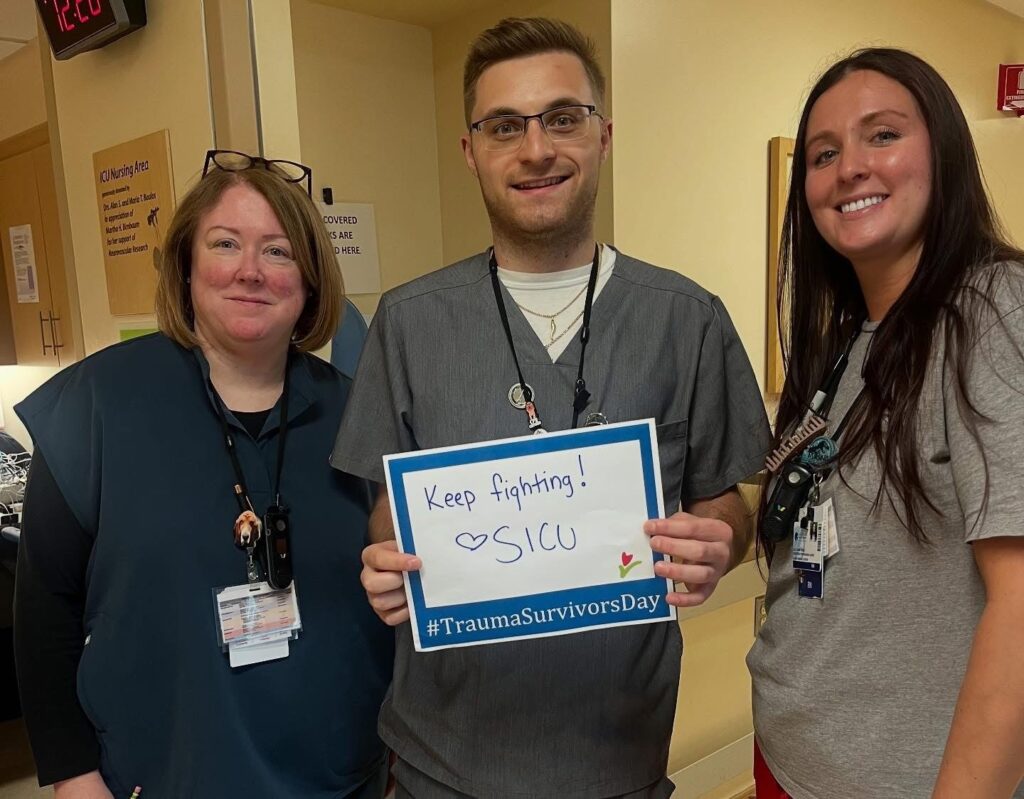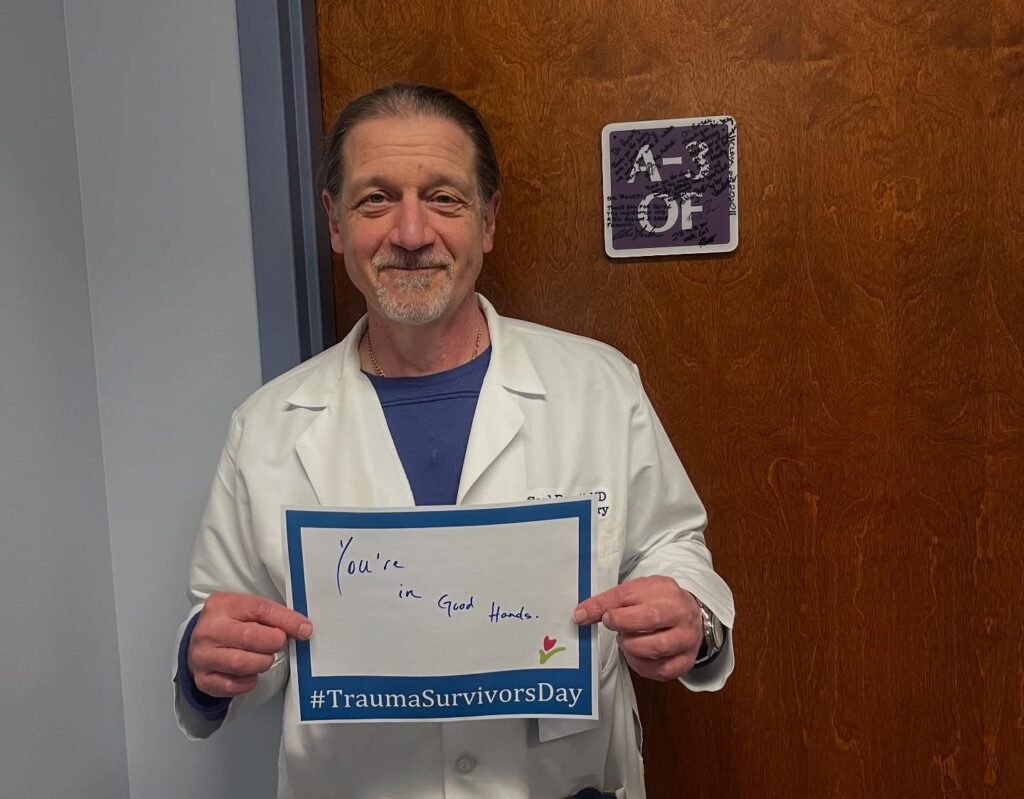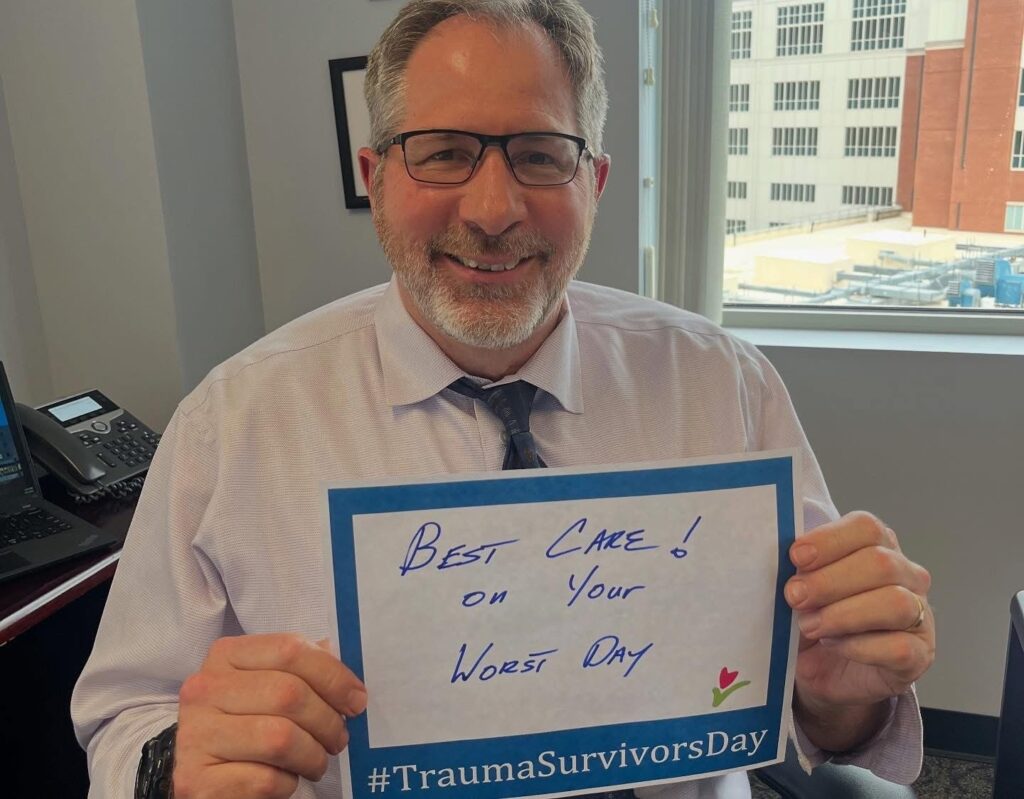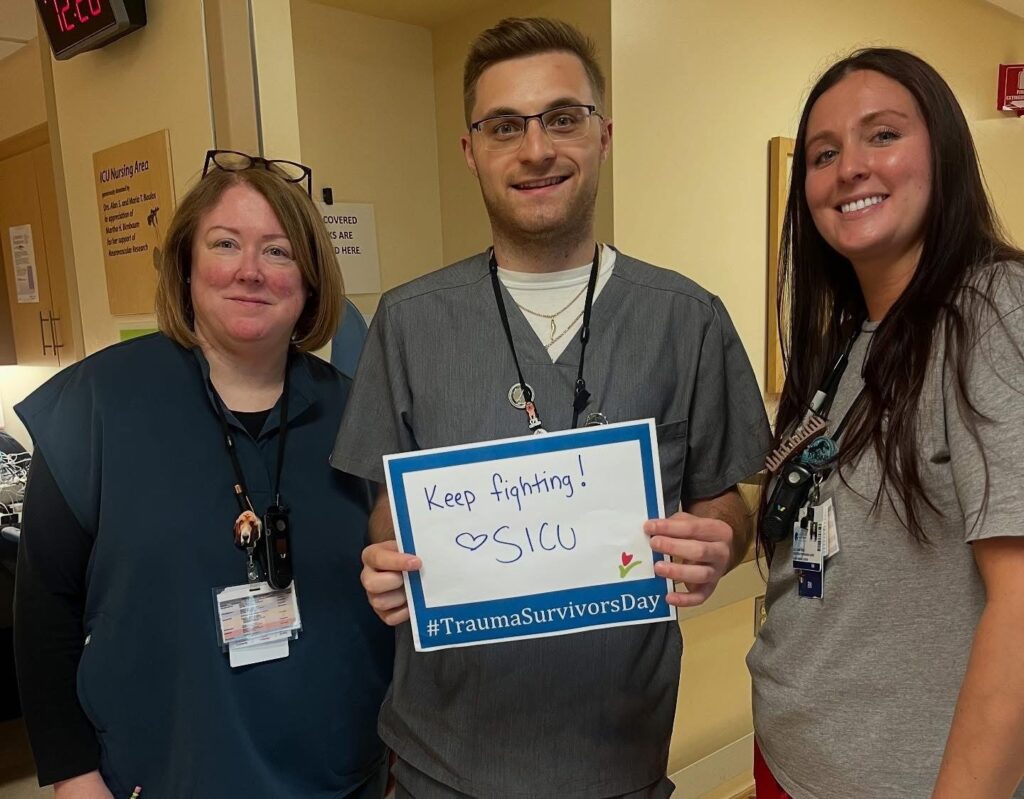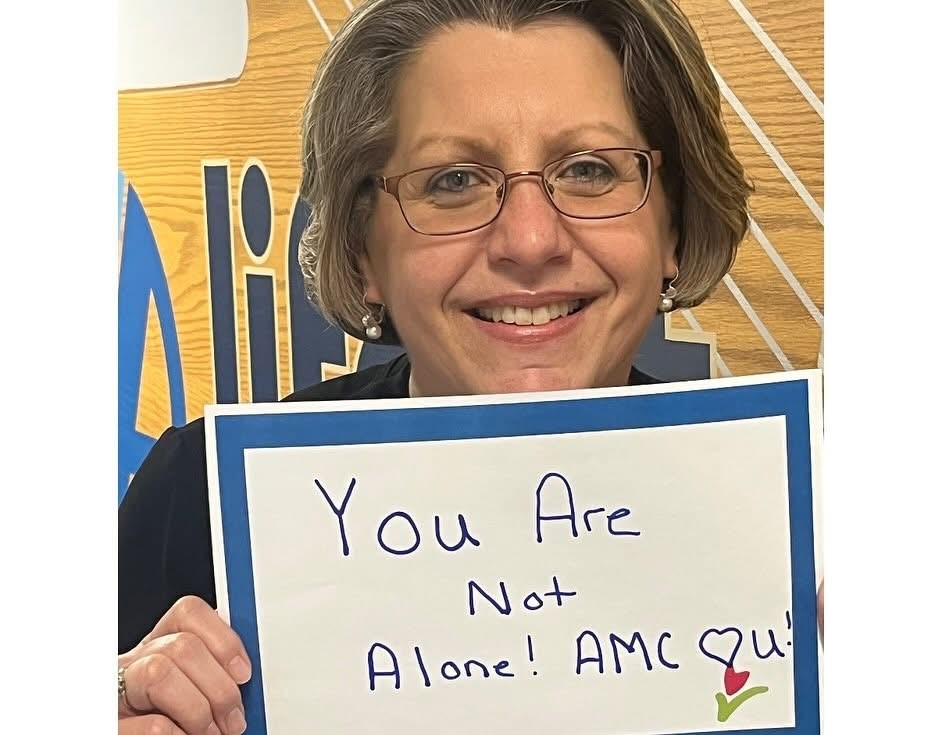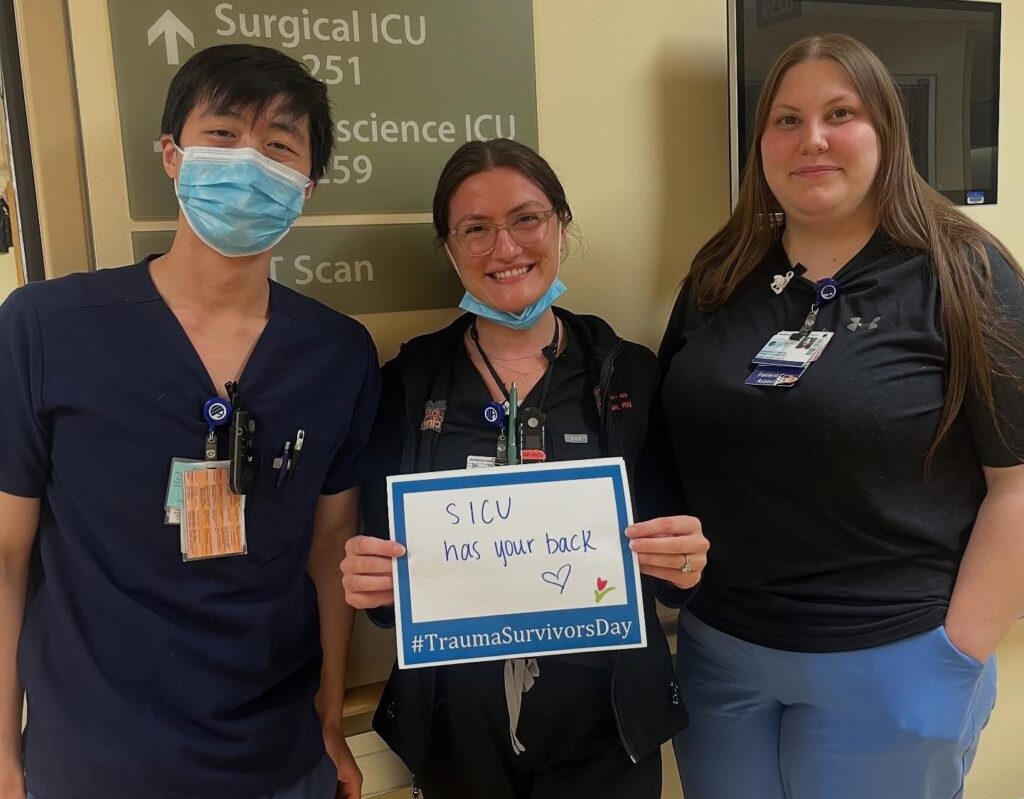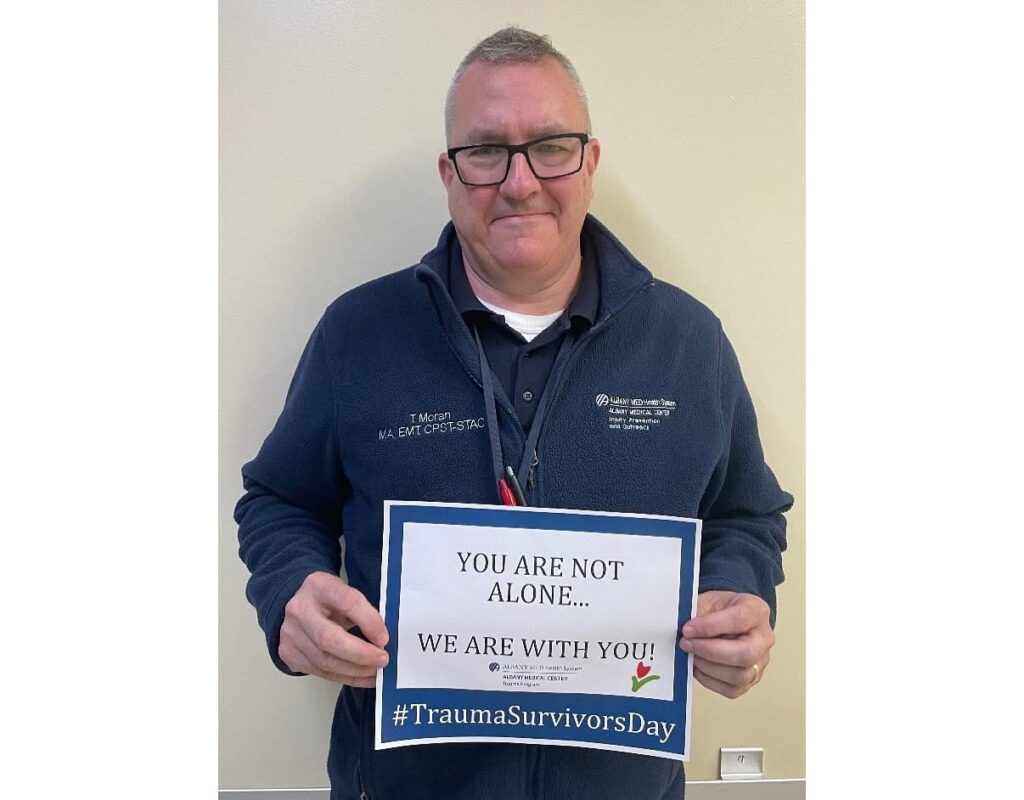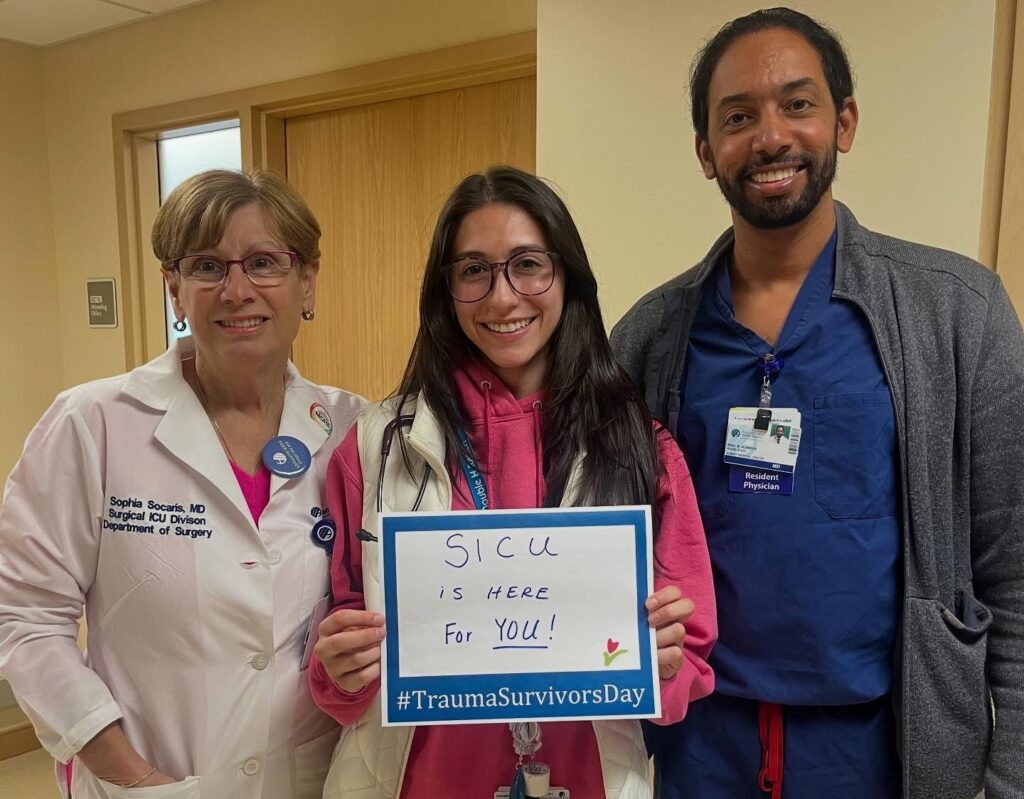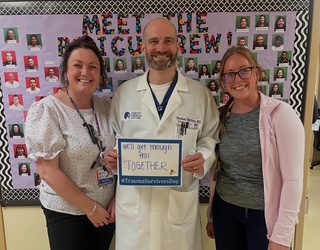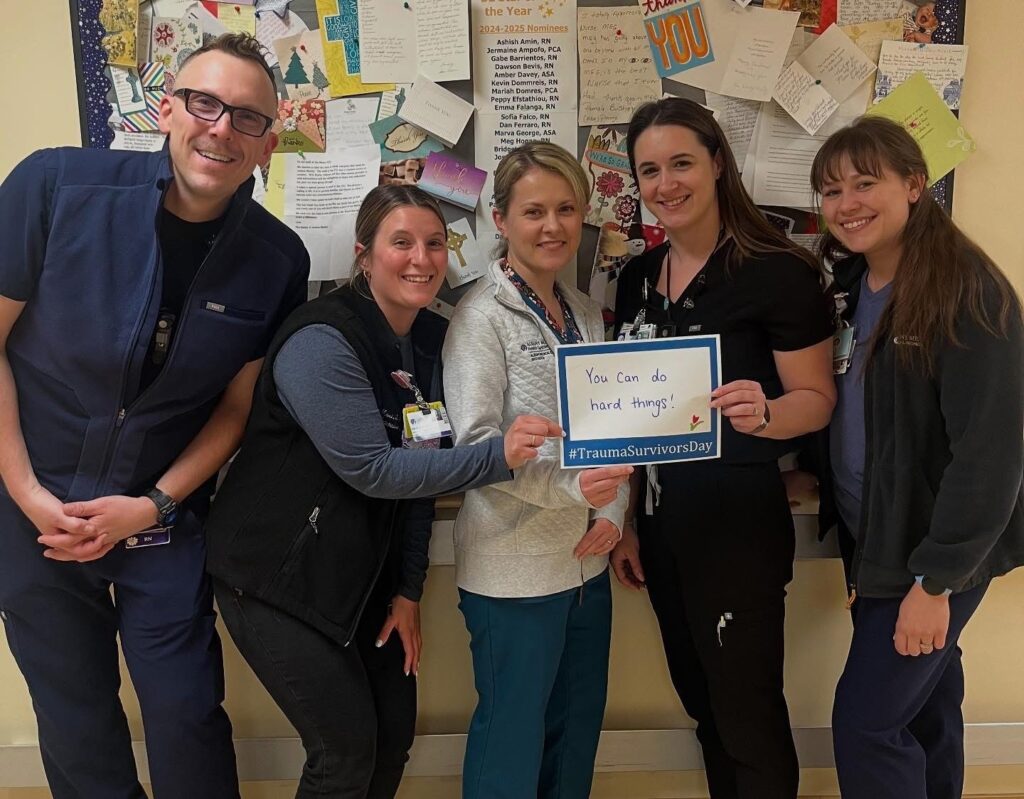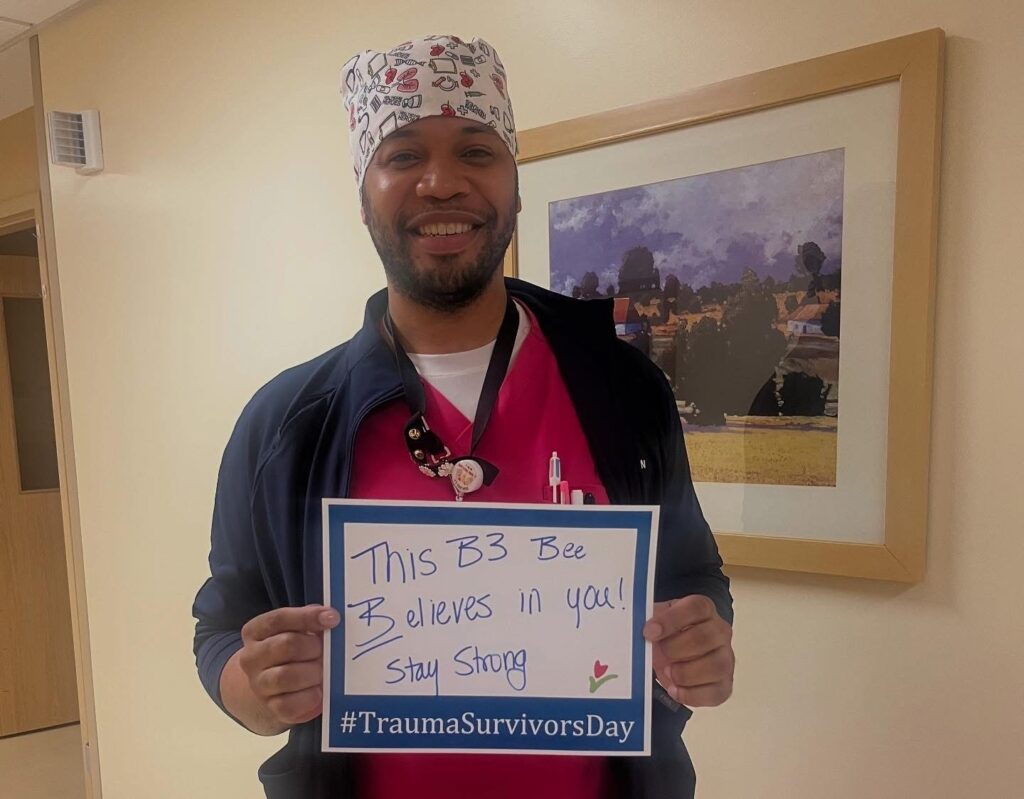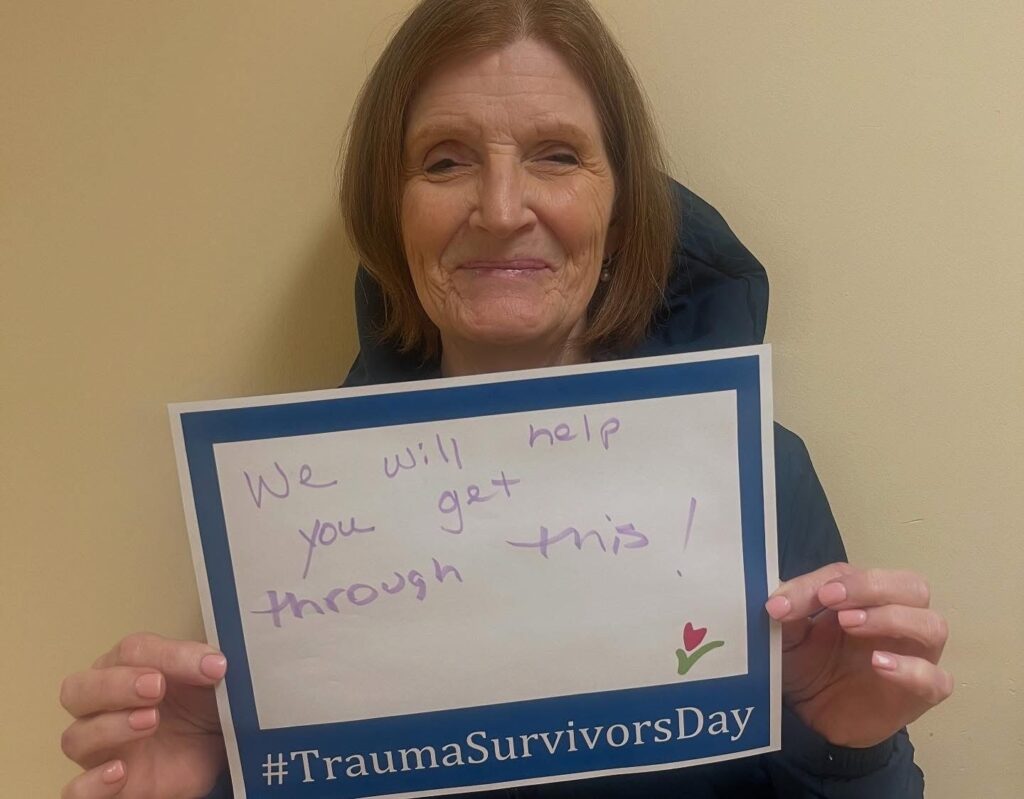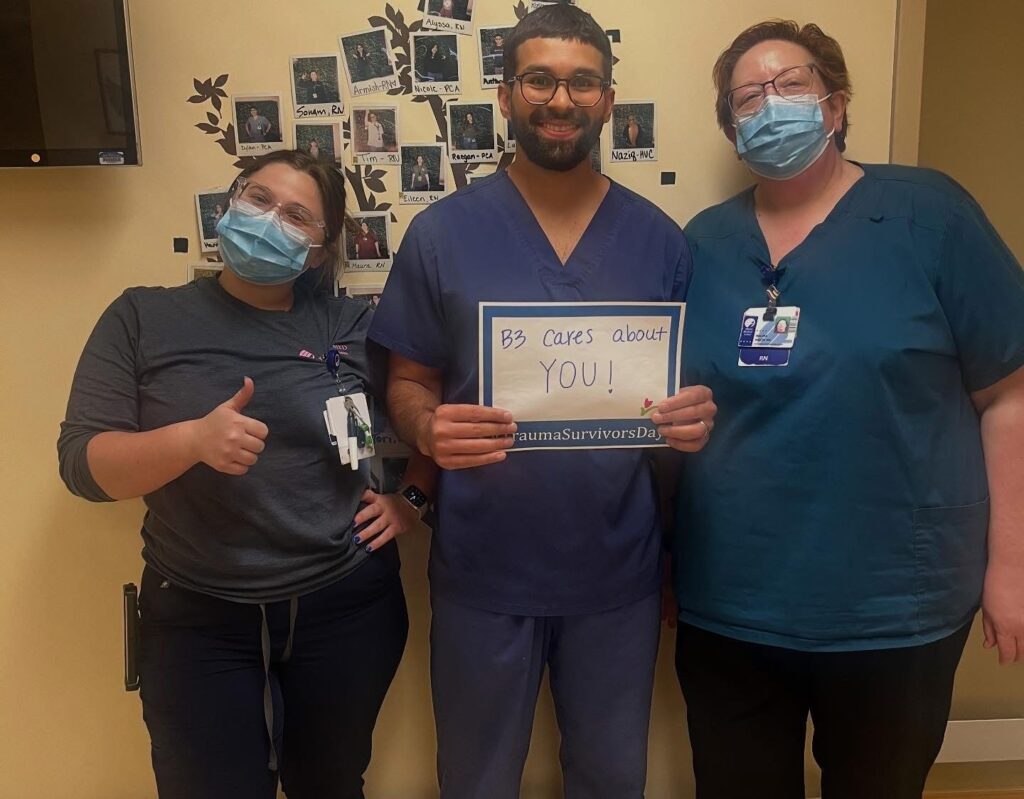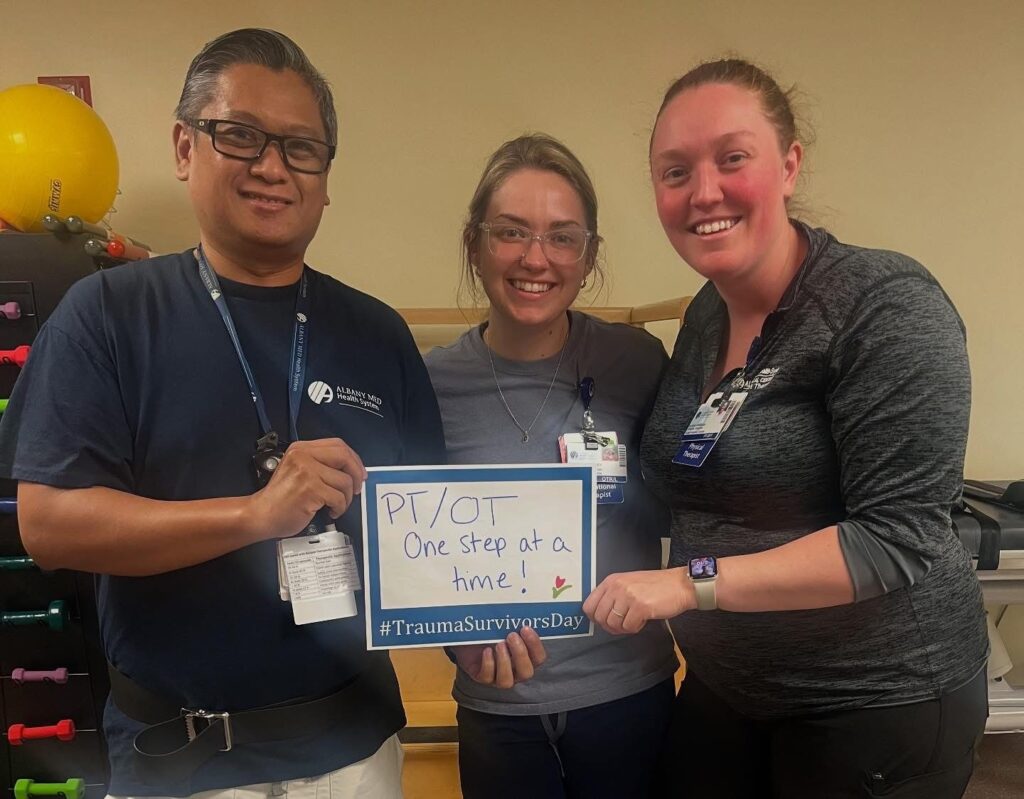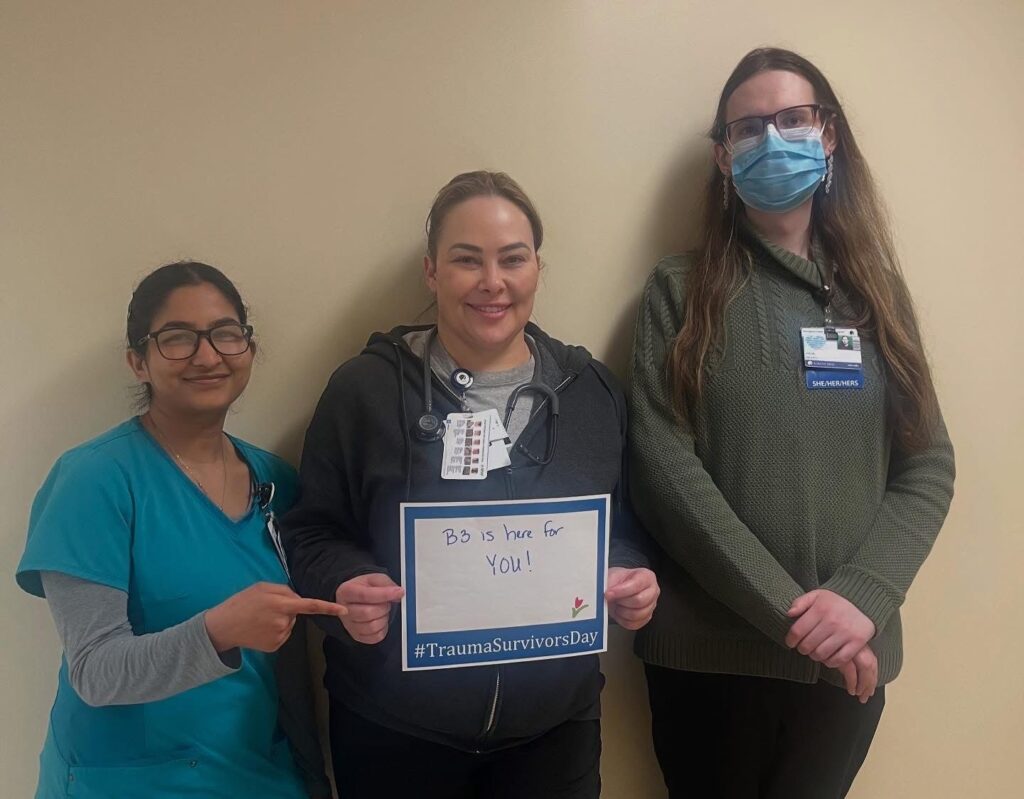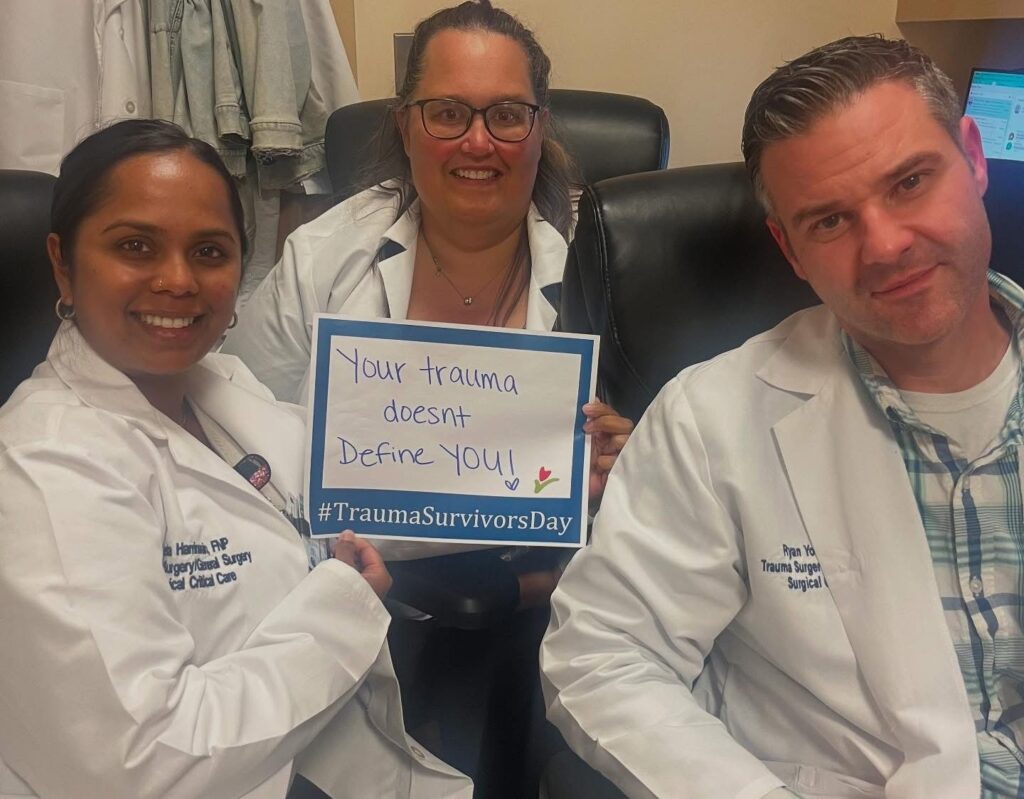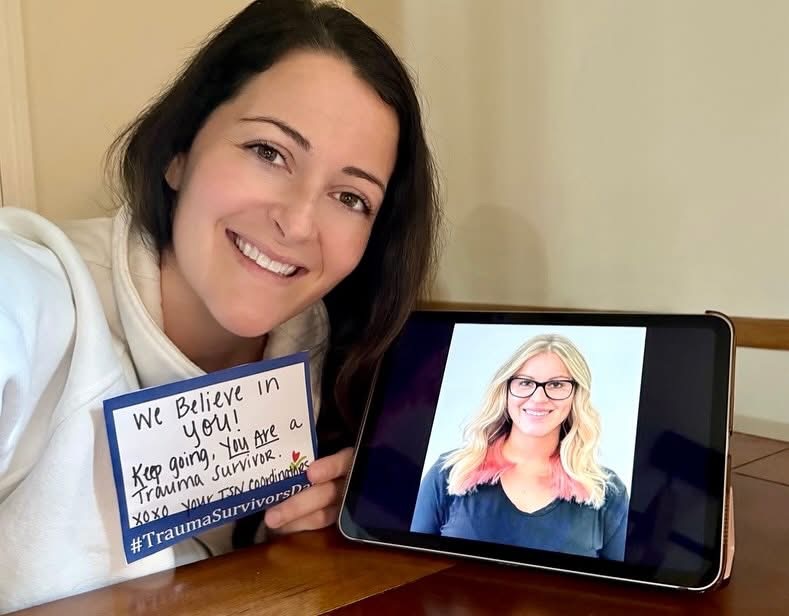

Our Services
Albany Medical Center is open for emergency care 24 hours a day, seven days a week. Our emergency department work closely with first responders and LifeNet of New York for transportation from accident scenes and other hospitals when emergency and specialized care is needed.
We provide:
- 24- hour in-house coverage by general surgeons, and prompt availability of care in specialties such as orthopedic surgery, neurosurgery, anesthesiology, emergency medicine, radiology, internal medicine, plastic surgery, pediatric and critical care.
- The only Level 1 adult Trauma Center in the region
- The only Level 1 pediatric Trauma Center in the region
- Open 24/7, dedicated care for children and teens at the Massry Family Children’s Emergency Center. Children brought to the Massry Center have access to the physicians and resources at the Bernard & Millie Duker Children’s Hospital.
- Medical and advocacy support for adult and pediatric victims of sexual assault, domestic violence, abuse, or maltreatment. Our team of certified forensic nurse examiners is available for bedside assessment, evaluation, and support.
- 24-hour high-level stroke and cardiac care
- Psychiatric, drug, and acute alcohol treatment and evaluation
- Ability to quickly stabilize and airlift patients in need of dedicated resources to Albany Medical Center
- Continuing education of the trauma team – physicians, nurses and EMS providers
- Comprehensive quality improvement team.

TSN Coordinator

Coordinator Name
Carli Arcidiacono
[email protected]
43 New Scotland Ave, MC-194, Albany, NY 12208
(518) 262-5141
Website: https://www.albanymed.org/albany/
2025 Trauma Survivors Day
Upcoming Programs & Events
May is Trauma Awareness Month!
May 2026 – The entire month of May is focused on raising awareness for trauma survivors, their family/friends, and the trauma professionals who go above and beyond every day. Learn more here .
National Trauma Survivors Day!
May 20, 2026 – The 3rd Wednesday in May is National Trauma Survivors Day! We celebrate together the strength and resiliency of trauma survivors, their family/friends, and the trauma professionals who go above and beyond every day. Learn more here.
NextSteps Online
Ongoing – The NextSteps program is a free 6-week self management course designed to recognize that YOU play the most important role in your recovery. based on the principles of self-management. It uses techniques that have been scientifically proven to increase one’s self confidence and sense of empowerment. NextSteps teaches you the skills to become an active self manager of your health and your life. Learn more here.
Local and National Resources
Albany Medical Center Trauma Education Outreach and Injury Prevention
More than 7,250 New Yorkers die each year because of injury. Injuries occur in predictable patterns, with recognizable risk factors, and among identifiable populations. We keep track of where, to whom, and why injuries occur across the region and use this information to develop injury prevention programs. For more information about our injury prevention programs, contact the Trauma Education Outreach and Injury Prevention Coordinator at 518-262-1203, 518-264-6797, or 518-264-1953 or [email protected].
American Chronic Pain Association
Since 1980, the ACPA has offered peer support and education in pain management skills to people with pain, family and friends, and health care professionals. The information and tools on this site can help you to better understand your pain and work more effectively with your health care team toward a higher quality of life. https://www.theacpa.org
American Foundation for Suicide Prevention
AFSP’s mission is to save lives and bring hope to those affected by suicide. We fund research to improve interventions, train clinicians in suicide prevention, and advocate for policy that will save lives. We work to find better ways to reach those who suffer, and encourage schools, workplaces, and communities to make mental health a priority. Whether you’ve lost someone or are struggling with suicidal thinking, you are not alone. We bring people who have been affected by suicide out of the darkness, and give them opportunities to help others. https://afsp.org/
American Trauma Society
Traumatic injuries affect both physical and psychosocial well-being. The Trauma Survivor’s Network Peer Support Groups connect trauma survivors, providing a space to share experiences, offer mutual support, and enhance coping skills. https://www.traumasurvivorsnetwork.org/support-groups/
Amputee Coalition
Empowering the Limb Loss and Limb Difference Community. From connecting people with mentors and support groups to providing trusted information and championing policy change, we are driving meaningful impact. Together, we are building a future where individuals can live fully and without limitations. https://www.amputee-coalition.org
Brain Injury Association of New York State
The Brain Injury Association of New York State is a statewide non-profit membership organization that provides advocacy and support to people and families living with brain injuries. Email: [email protected]
Phone: 1-518-459-7911
Family Helpline 1-800-444-6443
Brainline
Brainline provides education and resources about Brain Injury and PTSD for both adult and pediatric survivors and their families. They focus on treatment and recovery information for moderate to severe TBI symptoms in both adults and children. https://www.brainline.org
Capital District Central Office Alcoholics Anonymous
Do you think you have a problem with alcohol? Do you want to stop drinking, but find you cannot quit entirely or have little control over the amount you drink? Perhaps A.A. can help. The Capital District Central Office is an A.A. Service Entity staffed by volunteer A.A. members that provides helpline services to those in need. The CDCO maintains an inventory of AA books and pamphlets, as well as anniversary medallions and cards, which are for sale to AA members and the general public. 24 Hour Helpline- (518) 463-0906 Email: [email protected] Phone: (518) 463-0906
CDC Opioid overdose prevention
The Center for Disease Control and Prevention funds national research, specializes in health education, resources, and raising awareness. Some medications, such as prescription opioids, can help relieve pain in the short term but also come with serious risks and potential complications—and should be prescribed and used carefully. The CDC highlights that the best ways to prevent opioid overdose deaths are to improve opioid prescribing, reduce exposure to opioids, prevent misuse, and treat opioid use disorder. https://www.cdc.gov/drugoverdose/prevention/index.html
Family Caregiver Alliance
The Family Caregiver Alliance addresses the needs of family and friends providing long-term care for loved ones at home. It provides support, information, and tools to manage the complex demands of caregiving. These include online support and resources, navigators to help locate support services by state, and the National Center on Caregiving which unites research, policy, and practice to develop cost-effective programs for caregivers. Click the link to find out more about how FCA could help you or your family. https://www.caregiver.org/pilotIntegration/indexPersistent.html?uri=%2Fhospital-discharge-planning-guide-families-and-caregivers
Mental Health America
Mental Health America (MHA) – founded in 1909 – is the nation’s leading community-based nonprofit dedicated to addressing the needs of those living with mental illness and to promoting the overall mental health of all Americans. Resources and information for youth, parents, and adults. https://www.mentalhealthamerica.net
National Center for PTSD
The National Center for PTSD offers national resources for trauma survivors and families, which includes information about PTSD, resources such as the PTSD Coach Online, and videos from other survivors and professionals. https://www.ptsd.va.gov/
National Suicide Prevention Lifeline
The National Suicide Prevention Lifeline is a 24-hour, toll-free, confidential suicide prevention hotline available to anyone in suicidal crisis or emotional distress. Your call is routed to the nearest crisis center in the national network of more than 150 crisis centers. For assistance, call 1-800-273-TALK (8255), TTY: 1-800-799-4889. The Crisis Text Line is: 741741
Post-Traumatic Stress Disorder
If you have gone through a traumatic experience, it is normal to feel emotions such as distress, fear, helplessness, guilt, shame, or anger. If these symptoms don’t go away over time, you may have post-traumatic stress disorder (PTSD). Visit this website from Mental Health America to find out about PTSD and ways you can help yourself or a family member who may be suffering from PTSD. https://www.mentalhealthamerica.net/conditions/post-traumatic-stress-disorder
The Substance Abuse and Mental Health Services Administration National Helpline (SAMHSA)
This helpline provides 24-hour free and confidential treatment information about mental and/or substance use disorders, prevention, and recovery in English and Spanish. The SAMHSA website also offers a treatment locator to identify local mental health providers. For assistance, call 1-800-662-HELP, or visit www.samhsa.gov/
VictimConnect Resource Center
The VictimConnect Resource Center is a referral helpline where crime victims can learn about their rights and options confidentially and compassionately. As a program of the National Center for Victims of Crime, it combines: a telephone-based helpline, online chat, online information, and service referrals. 1-855-484-2846 https://www.victimconnect.org
VictimsFirst
VictimsFirst is a network of surviving victims of mass casualty crime and trusted supporters who have first-hand experiences of the problems and re-victimization that accompany these acts when there is a lack of coordinated effort and/or understanding of what survivors need. https://www.victimsfirst.org/

